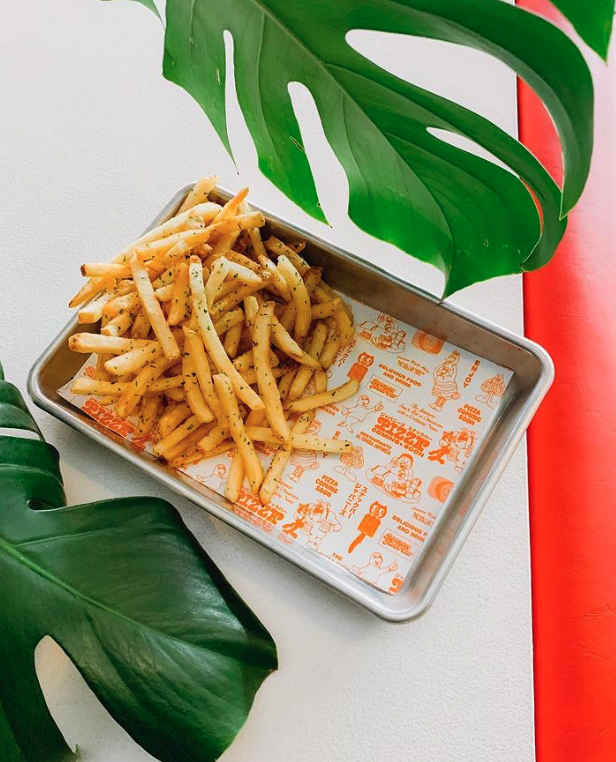
The Top 6 Eco-Friendly Packaging Materials for Food to Try in Your Business
Sustainable food packaging helps businesses reduce waste while ensuring the health and safety of customers. Here are 6 eco-friendly food packaging materials to try.
By Francesca Nicasio — 27 June, 2022
noissue Custom Wax Paper by @pizzacomingsoon
Traditional food packaging materials such as single-use plastic bags and takeout containers create a substantial environmental impact. In fact, food waste and containers/packaging account for nearly 45% of the waste in American landfills.
As such, food companies must look for alternatives in the form of eco-friendly food packaging — not just to reduce their carbon footprint but also to ensure the health and safety of consumers.
In this article, we’ll discuss the meaning of eco-friendly packaging, the benefits of sustainable packaging in the food service industry, and highlight some eco-friendly packaging solutions that are superior alternatives to the traditional ones.
What is eco-friendly packaging?
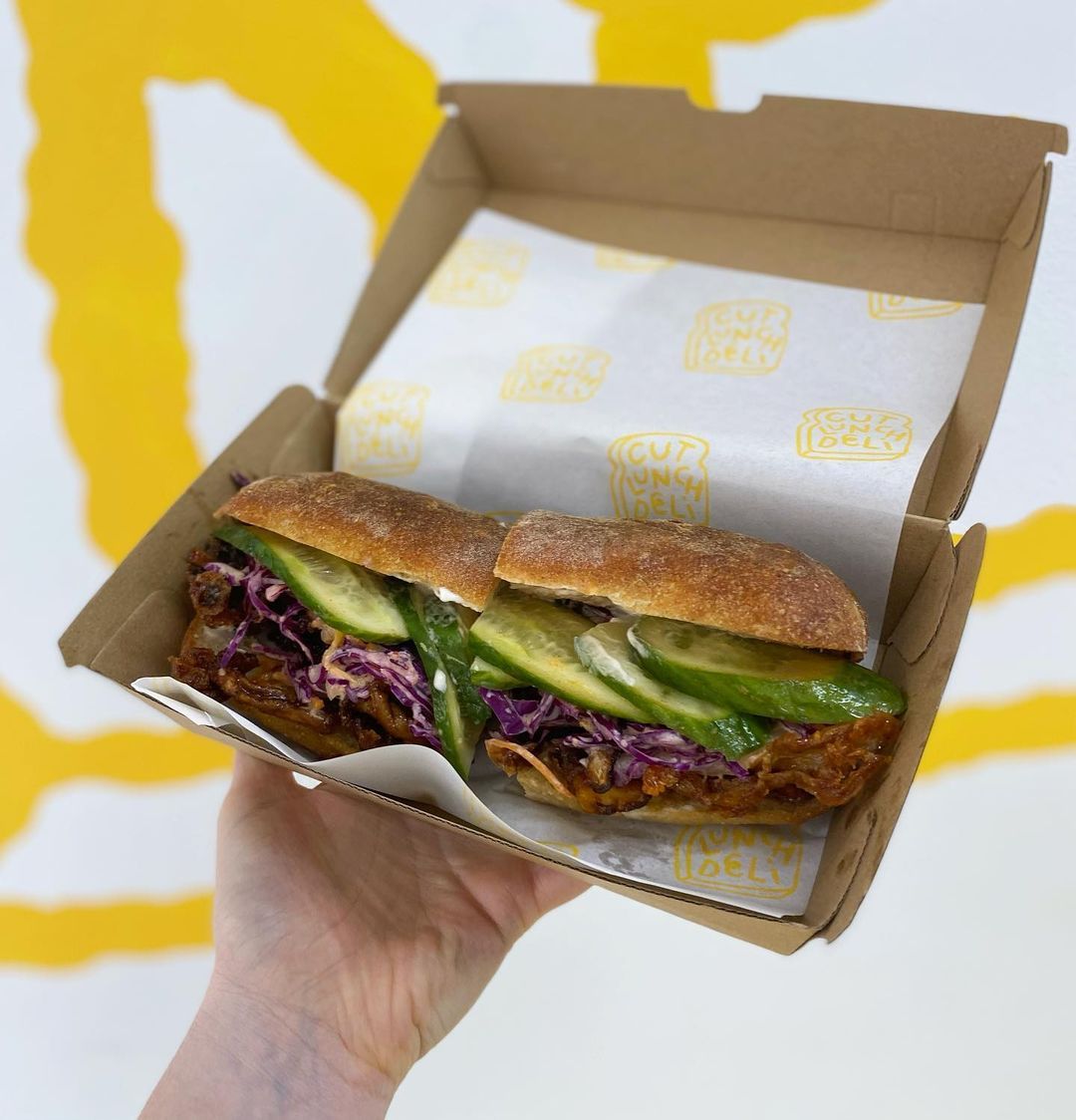
Eco-friendly packaging materials are ones that are environmentally friendly, easy to recycle, and safe for humans to use. The Sustainable Packaging Coalition lays down the following criteria for any packaging to be deemed sustainable:
- It must be safe and healthy for humans throughout its lifecycle.
- It must meet the market standards for performance and costs.
- It should be sourced, manufactured, and recycled using renewable power sources.
- It must use renewable or recycled source materials.
- It must be manufactured using clean production best practices.
- It must be designed to optimize the use of materials and energy.
Besides these, food packaging materials must also ideally have a minimal impact on energy consumption and converse resources. For food companies, embracing eco-friendly packaging means using packaging materials that have a minimal environmental impact throughout their life cycle while maintaining food safety and quality.
Awareness of the environmental effect of using plastics — from raw materials to finished goods — continues to grow among governments and consumers around the world. That‘s why more countries are taking a stronger stance on harmful packaging materials. Countries like Australia, Kenya, and Morocco have either cracked down on the use of plastics or banned their use outrightly.
The point is: laws are changing and customers are also increasingly pushing for brands to be more environmentally sustainable. Failure to embrace eco-friendly packaging today can affect your brand image down the line and even cost you hefty government fines.
One pitfall you need to be wary of is greenwashing. It applies to companies that offer a misleading impression in regards to their environmental impact.
Sustainable packaging solutions can sometimes be a bit more expensive than traditional packaging options, and some companies cut corners by misleading consumers.
For example, a company that claims its packaging is eco-friendly when most council districts cannot process the material is misleading customers. You should aim to be as transparent as possible about the level of sustainability of your packing materials.
The differences between recyclable, compostable, and biodegradable materials
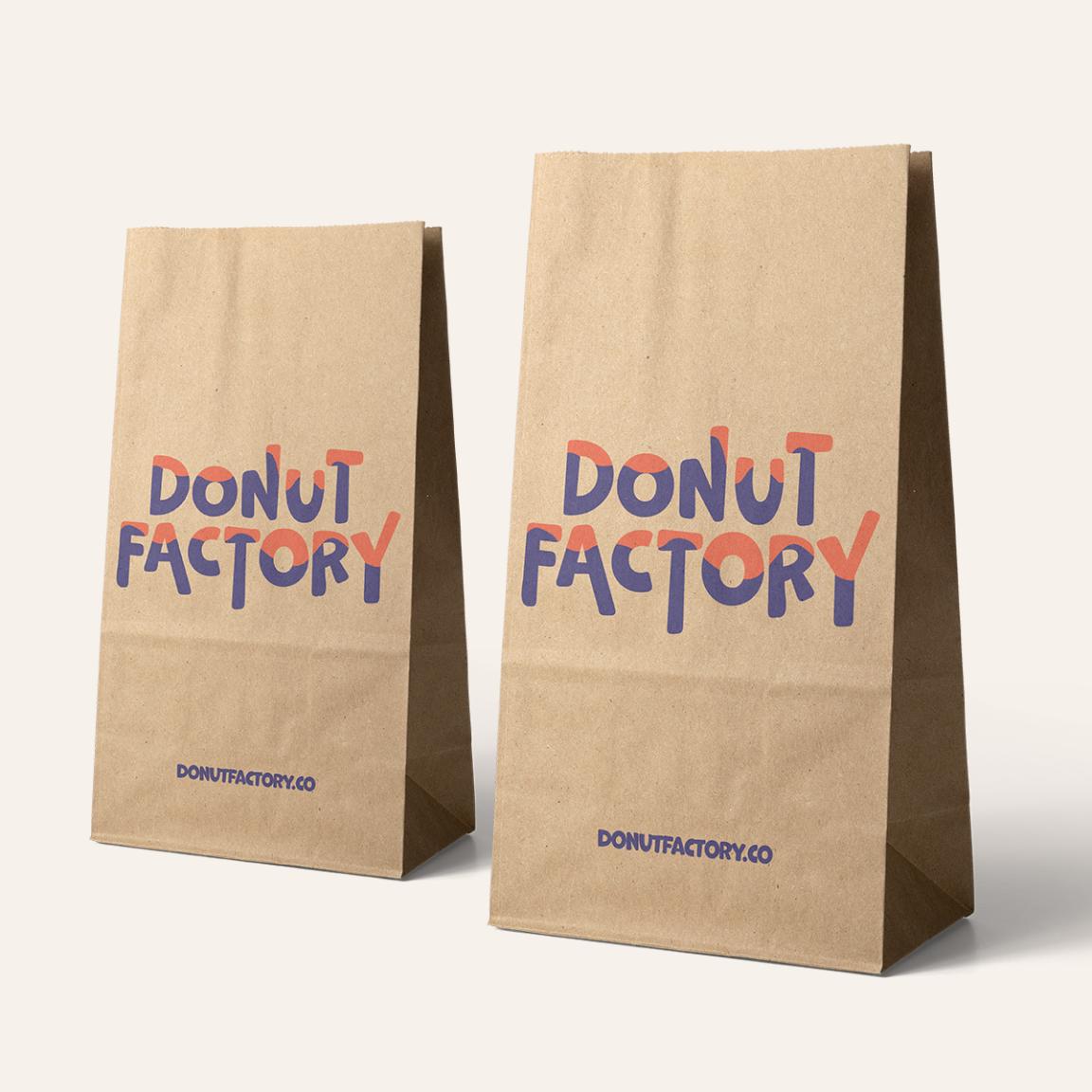
You may have seen eco-friendly food packaging being labeled as recyclable, compostable, or biodegradable. Often, these distinctions may seem to be quite confusing. Let’s take a look at each of them.
Biodegradable packaging
Biodegradable means that the packaging materials can be broken down naturally by microorganisms such as bacteria or fungi under specific conditions (like temperature, humidity, etc.) They break down more quickly than plastics but the length of time needed for each product to decompose can vary.
Also, some biodegradable packaging materials (like biodegradable plastics) break down into microplastics that can be very damaging to the environment if they end up in oceans. Despite this, they are a more environmentally-friendly solution than their traditional counterparts.
Compostable packaging
Compostable means the packaging material breaks down into its original components and decomposes back into the earth without leaving any toxic residue. These types of materials are usually made from plant-based sources like corn, sugarcane, or bamboo.
Compostable packaging materials are usually home compostable or may be decomposed through a controlled process in an industrial composting facility. The packaging material should break down within 90 days in an industrial composting facility or within 180 days in home composting conditions for it to be considered compostable.
You should also note that compostable and biodegradable packaging materials are often not recyclable. They can even contaminate the recycling process if placed in the same bin as recyclable packaging.
Recyclable packaging
This refers to packaging materials that can be processed and turned into something new, keeping them away from landfills. Glass, paper, metals, and some types of plastics can be recycled.
Recycling glass, metal, and aluminum packaging materials is usually straightforward since they can be recycled endlessly. However, paper and plastic packaging materials can only be recycled a few times before they are disposed of.
In the hierarchy of sustainable packaging solutions, we would recommend that you first look for materials that are compostable, recyclable, and lastly biodegradable.
This is because compostable materials can be turned into raw materials to be used again, recyclable materials can be converted, but biodegradable plastics are just broken down and cannot be reused.
Why are sustainable packaging materials important for food?
If you‘re still not convinced about the need to adopt eco-friendly packaging solutions, here are a few more reasons why you should take the leap.
1. It reduces the environmental impact
Traditional food packaging ends up as landfill waste — negatively impacting the environment and contributing to greenhouse gas emissions. The production of traditional packaging (like the use of oil to make plastics) also puts a strain on our planet since the source is non-renewable.
Embracing sustainability means you will start using packaging materials that are renewable or recyclable thereby minimizing your impact on the environment.
2. It eliminates the use of toxic materials
Traditional unsustainable food packaging materials don’t just negatively impact the environment, they can also contain toxic materials that are harmful to humans. For example, some plastic packaging materials leach chemicals into the food they preserve over time, and such chemicals can be detrimental to the health of your customers.
A sustainable packaging material, on the other hand, is designed to ensure that the food doesn’t get contaminated. You can always rest assured that your customers are safe.
3. It resonates with eco-conscious customers
Consumers care about brand values and by using sustainable packaging, you can communicate to your customers that you care deeply for the environment.
Packaging solutions from noissue are certified as compostable and recyclable and this is displayed on the packaging itself. So when you use our products, your customers automatically know what you stand for. They can also benefit from our printed instructions on how best to dispose of the packaging material.
4. It saves businesses money
Embracing eco-friendly packaging also means adopting sustainability practices like reducing the size of your packaging and eliminating over-packaging. This compactness leads to lower shipping costs and getting rid of unnecessary packaging, saving you money.
6 eco-friendly food packaging materials to consider
Now that we’ve covered why eco-friendly materials are so important for the food service industry, let’s take a look at some eco-friendly alternatives you should consider when switching to green packaging for your food business.
1. Compostable Food Wrapping Paper
noissue‘s Custom Food Wrapping Paper is an excellent example of a compostable food packaging material made from FSC-certified paper. Even though it’s uncoated, it’s still food-safe and can be custom printed (using food-safe water-based inks) to ensure that your packaging is beautiful and on-brand.
Other alternatives include some kraft parchment paper (those not coated with silicone). Made from wood pulp and often lined to give it a non-stick surface. It can withstand high temperatures of 420-450 degrees F in the oven, so it’s ideal for lining cake pans and baking sheets, making dumplings or ravioli at home, or wrapping meat and fish.
2. Recycled Kraft Paper Takeout Bags
Recycled food packaging gives a new lease on life to materials that are already in circulation and limits the need to collect new raw materials. Unlike regular paper, kraft paper (also known as brown paper) is manufactured from wood pulp. Being made from plant-based materials, it's eco-friendly, recyclable, and compostable.
noissue’s Custom Takeout Bags are made from 100% recycled kraft paper and are curb-side recyclable or reusable. They come with paper handles making them great for food deliveries.
These are best paired with a Custom Coated Sticker Label or compostable roll labels for a branded, professional look. noissue‘s Custom Sandwich Bags are also made from recycled kraft paper and are perfect for cafes, bakeries, delis, and takeout.
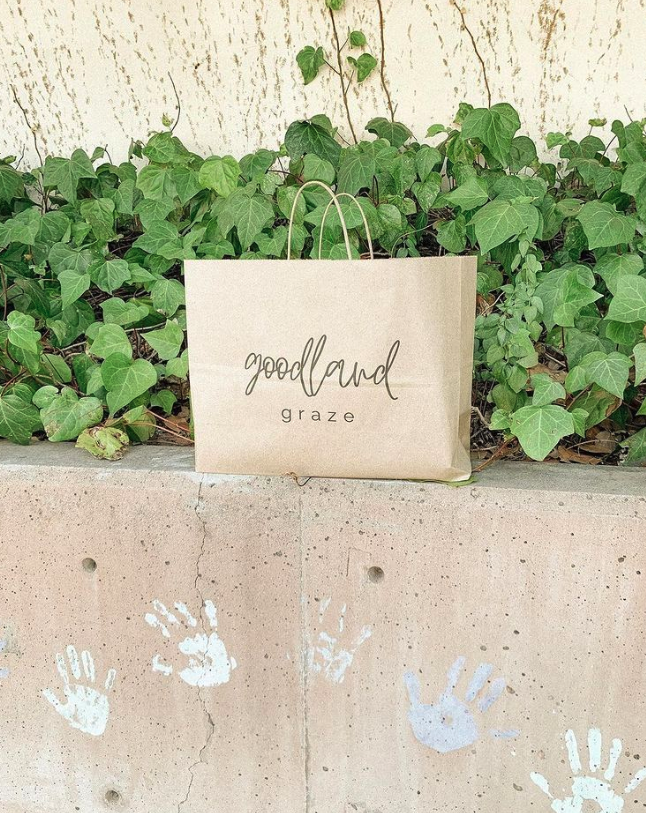
3. Recyclable Coated Greaseproof Paper
Alternatives to butcher paper or wax paper, this is typically made from cellulose derived from wood pulp. The paper is coated with an oil or fat-resistant substance to prevent oil and grease from penetrating it. This makes them perfect for packaging fried foods, lining food baskets, etc.
noissue’s Custom Wax Paper is made from acid-free paper, is grease-resistant, and 100% FSC-certified. It comes in a range of different sizes, and you can customize them in your own branding and style. We use water-based food-safe inks for printing so the product is curb-side recyclable after use.
4. Bioplastics
Bioplastics are plastic packaging materials derived from marine, plant life, or a material of biological origin other than petroleum. They are considered more environmentally friendly because their production requires lesser quantities of fossil fuels. Learn more about bioplastics in our guide to PLA packaging.
Starch-based polysaccharide and polylactic acid (PLA) bioplastics are biodegradable, while polyethylene terephthalate (PET) bioplastics are recyclable.
Checkout noissue's custom folded takeout boxes, lined with a polyethylene (PE) coating, it is food safe and recyclable. For a compostable variant, see our clamshell takeout containers, made from sugarcane and commercially compostable (keep reading for more on this!)
5. Recyclable Paper-Based Coasters
Custom recyclable coasters can be the perfect addition to your restaurant, bar, cafe, or events — helping keep your surfaces clean while also showing off your branding. noissue’s Custom Paper-based Coasters are fully customizable so you can show off your seasonal designs, QR codes, or brand logo, and even offer them to your customers as keepsakes.
6. Bagasse Packaging
This is made from natural sugarcane fibers. After the sugar is extracted from sugarcane plants, the leftovers are not disposed of, and instead, the material is used to make bagasse packaging.
The result is a durable and eco-friendly container. The production process also uses much less energy compared to plastic. Bagasse containers are both biodegradable and compostable.
noissue's Custom Clamshell Packaging is made from a blend of plant fibers such as Switchgrass and sugarcane and meets ASTM D6400 standards for commercial compostability.
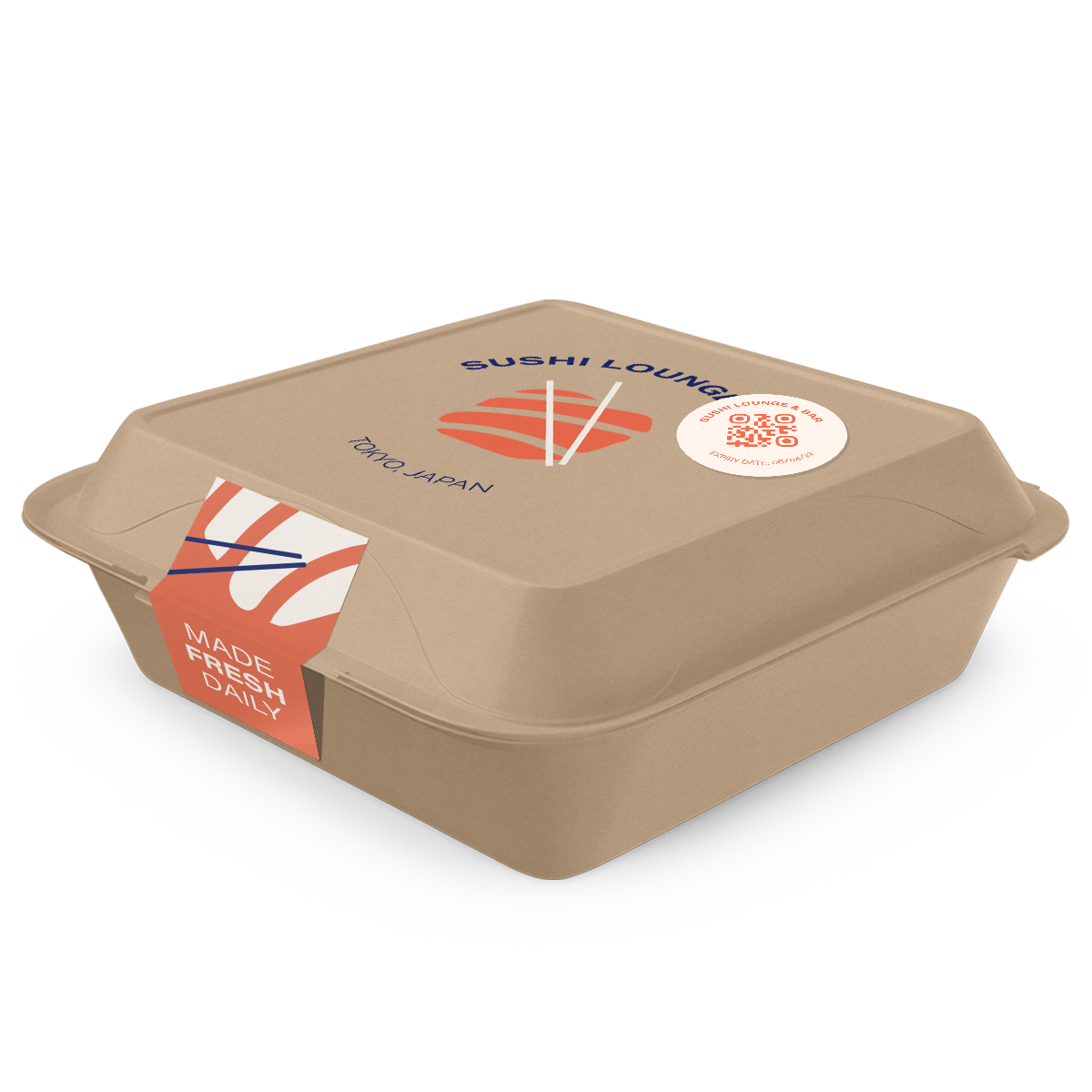
Wrapping It Up
Now that you know the benefits of using eco-friendly food packaging and some great examples of sustainable food packaging materials, it's time for you to make the switch!
Custom, on-brand packaging is the way to go when you are looking to move away from plastic containers and bags to more sustainable alternatives. Custom packaging makes your brand instantly recognizable and elevates the customer experience.
Check out our complete range of customizable and sustainable packaging solutions for restaurants and takeout today.